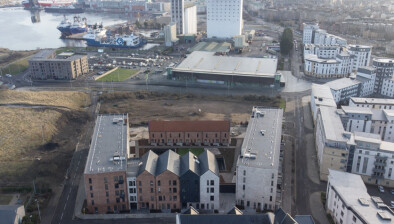Edinburgh short-term let planning permission policy change did not have retrospective effect

A Lord Ordinary has ruled that a decision of the City of Edinburgh Council to designate the whole of the city as a short-term let control area did not have retrospective effect after a challenge was brought by the director of a company that owned properties used for secondary short-term lets and another property management company, and reduced local authority guidance to that effect.
Iain Muirhead and Dickins Edinburgh Ltd sought declarator that the use of a dwellinghouse to provide short-term lets did not involve a material change of use so long as that use predated the creation of the short-term let control area. As a result, the guidance issued by the respondent to the opposite effect was irrational insofar as it proceeded upon a material error of law.
The petition was heard by Lord Braid in the Outer House of the Court of Session. J Findlay KC appeared for the petitioners and Mure KC for the respondent.
General presumption
Under section 26B of the Town and Country Planning (Scotland) Act 1997, a planning authority may designate all or part of its area as a short-term let control area, with the consequence that the use of a dwellinghouse for the purpose of providing short-term lets is deemed to involve a material change of use of the house. Using that provision, the respondent designated the whole of the city of Edinburgh as such an area with effect from 5 September 2022.
On 19 April 2023, the respondent’s planning committee resolved to adopt a change to its planning guidance for businesses. The critical section for the purposes of the petition stated that planning permission would be required for any use of a residential property for short-term let accommodation unless confirmation was obtained from the council that it was not required.
In a letter sent by the Assistant Chief Planner for the Scottish Ministers to the respondent’s chief planning officer, dated 17 July 2022, the proposed designation was approved, with the letter stating that a change of use after the designation of the control area would be deemed a material change. The petitioners contended that it was the view of the Scottish Government that section 26B did not have retrospective effect, in line with the general presumption against it.
It was submitted for the petitioners that to hold the respondent’s interpretation of section 26B was correct would involve a significant innovation upon the structure of the Act. The Scottish Parliament was unlikely to have effected such a change without having expressly made clear that use itself, rather than change of use, required planning permission.
For the respondent, it was submitted that the usefulness of the measure would be emasculated on the petitioners’ interpretation, since it would fail to affect existing short-term lets. The legislative aim was to allow authorities the power to control use of housing for short-term lets and thus balance the needs of their communities with the economic benefits the sector could bring.
Fundamental innovation
In his decision, Lord Braid observed: “It is worth pointing out that the correct meaning and effect of section 26B is mired in confusion. As will be seen, the petitioners’ view that it is not retrospective but applies only to future changes of use is shared by the Scottish Government, no less, which has issued guidance to that effect. Meanwhile, the respondent has issued guidance reflecting its contrary view. Whichever view is correct, that is not a happy situation for any existing short-term let operators in Edinburgh who might be reliant on official guidance in the management of their affairs.”
Examining the construction of section 26B within its context, he said: “The Act envisages that planning permission be applied for before any development takes place, that is, in the case of a material change of use, before the change takes place, not after.”
He explained further: “Thus, while the Scottish Parliament could have deemed a change of use to have occurred from use B to that same use B, with the effect that short-term letting which was lawful immediately before midnight on 4 September 2022 ceased to be lawful immediately after midnight because of the deemed change of use, one might expect such a significant provision to have been made in express terms, given the fundamental innovation to the scheme underlying the Act which that would entail.”
Assessing whether the section applied retrospectively, Lord Braid said: “I find that the Scottish Parliament did not intend that section 26B should have retrospective effect by requiring planning permission to be applied for where there had already been a change of use. Had that been its intention, it would have made that clear in express terms, or at least, language which was clearer than that used.”
He concluded: “There is not a hint in the Scottish Government material that it considers that the provision is not useful even on the basis that it applies only to future changes of use. It will of course remain open to the respondent to take enforcement action against any past material change of use for which planning permission was not obtained, or indeed to take action under section 71, on amenity grounds, should it consider that to be justified.”
The petitioners’ first ground of challenge having succeeded, Lord Braid granted the orders of declarator and reduction that were sought.







